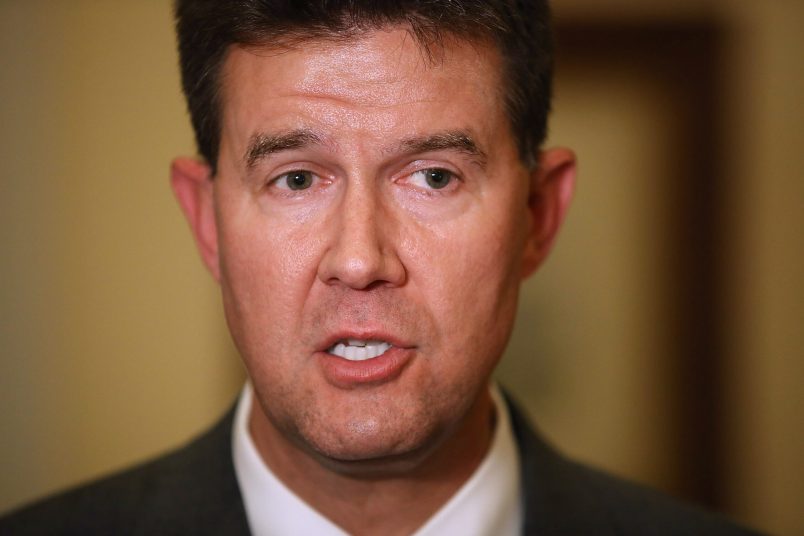The U.S. Court of Appeals for the 11th Circuit refused to reinstate a de facto ban on curbside voting that Alabama’s Secretary of State John Merrill (R) has tried to impose in the state. The appeals court did, however, revive restrictions on absentee voting that had been loosened for the pandemic by a federal judge.
In a statement, Merrill said he intended to go to the Supreme Court so that he could continue to prohibit curbside voting.
Through Alabama is letting voters cite COVID-19 as an excuse to vote absentee, state officials have aggressively fought other efforts to make voting safe and accessible during the coronavirus outbreak.
A federal judge has twice blocked the state’s full enforcement of its photo ID requirement for absentee voting and its mandate that absentee voters get the signatures of either two witnesses or a notary. The first time U.S. District Judge Abdul Kallon relaxed those restrictions, ahead of Alabama’s July primary, the state also had to go to the Supreme Court to reinstate the absentee voting rules and Merrill’s ban on curbside in-person voting.
The most recent legal back-and-forth comes after Kallon held a nine-day trial on the merits of the restrictions. His ruling after the trial ordered a carveout for the absentee voting rules for voters particularly vulnerable to COVID-19.
One of the judges on the appellate panel, Obama-appointee Jill Pryor, would have also upheld that carveout, while Trump-appointee Circuit Judge Barbara Lagoa dissented from the move to allow counties to offer curbside voting. The third judge on the panel, Obama-appointee Adalberto Jordan, cast the deciding vote to restore the absentee voting restrictions but to allow curbside voting.
“Although we are pleased that counties will be allowed to offer curbside voting on Election Day, we are deeply disappointed with the Eleventh Circuit’s reinstatement of the witness and photo ID requirements,” NAACP LDF senior counsel Deuel Ross, who represented the challengers, said in a statement.
Merrill meanwhile called the reinstatement of the absentee rules “a win for the people of Alabama,” while claiming that the “requirements are necessary deterrents for those looking to commit voter fraud.”
Kallon, in his opinion opinion relaxing the restrictions, said that the state had not put forward adequate evidence that the requirements prevented voter fraud. The 11th Circuit’s order did not come with an opinion laying out why the panel had voted the way it had.
Unlike the absentee voting rules, there is no state law explicitly prohibiting curbside voting. Merrill instead has argued that, because state law doesn’t expressly allow the option, curbside voting is illegal.
On multiple occasions before the pandemic, he or his deputies have intervened to stop counties that were offering curbside voting.
The option has gained more attention with the COVID-19 outbreak, and the CDC has recommended that election administrators consider it as an opportunity for voters limit their COVID-19 risks while casting ballots in-person.
It’s unclear if, assuming the 11th Circuit order stands, any counties in Alabama will offer the service for this year’s election.
“While our office is currently unaware of any county planning to provide curbside voting for the November 3, 2020 General Election, we intend to appeal to the Supreme Court to see that this fraudulent practice is banned in Alabama, as it is not currently allowed by state law,” Merrill said in his statement.
Update: This story has been updated to include a statement from Secretary of State Merrill.







Pretty amazing the lengths Republicans go to to make voting more difficult and less safe.
The thing Republicans fear most: voters.
Actually, they would like to eliminate all voting except for “qualified white men who own land.”
and if you want to get real, " qualified RICH white men who own land"
If They could figure out a way to eliminate voting they would be good with that
Just a theocratic, white, ruling entity would suit them fine
Merrill’s argument violates the 10th Amendment…anything not in law is left to the people, so if curbside voting is not in the law then it is allowed, and that can only change from legislation. Pretty sad to see a government official and a judge state the opposite, but Republicans are big on dictatorship right now.